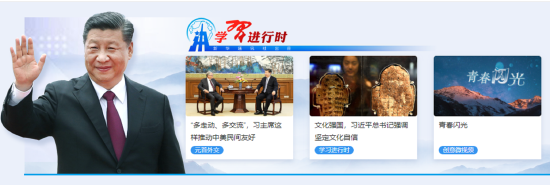
Chinese state media inadvertently explains why a major US-China detente won’t happen
Tom Rogan
What next for U.S.-China relations?
Well, Beijing reacted angrily on Wednesday to President Joe Biden’s assessment of why Xi Jinping was aggravated by the spy balloon incident earlier this year. Biden said it was because Xi didn’t authorize the balloon’s U.S. transit or know about it until it was too late. Biden added, “That’s a great embarrassment for dictators. When they didn’t know what happened.” A Chinese foreign ministry spokesperson said that Biden’s remarks “seriously violated diplomatic protocol and severely infringed on China’s political dignity. It’s a blatant political provocation.”
BIDEN’S CLIMATE AGENDA DREAMS COLLIDE WITH MILITARY REALITIES
Biden’s dictator line will annoy Beijing, but not overly so. Indeed, Xi and his inner circle will be more annoyed by the suggestion that Xi did not know about the balloon flight than by the notion that Xi is a dictator. Xi’s administration places immense importance on the constant, public understanding that Xi is China’s all-powerful leader of 21st-century destiny.
What Beijing really cares about, however, is U.S. action that aligns with its most optimistic interpretations of what Secretary of State Antony Blinken said during his recent visit to China.
Chinese domestic state media underlined this point with an analysis of Blinken’s meeting with Xi. The analysis was posted on numerous state media websites on Wednesday, including on those of Xinhua and the People’s Liberation Army. It praised Blinken’s words on issues such as his opposing Taiwan’s formal independence from China, and his seeking of improved communication and cooperation. But the analysis added a caveat: “The Chinese people, who are accustomed to seeing the ups and downs of Sino-U.S. relations, want to say to the U.S. side: The key is to put everything into practice.” The analysis concluded with a poetic reference to Xi’s leadership in support of stable relations, asking, “What will the U.S. do? People will wait and see.”
This reflects a broader problem that I noted on Tuesday. Namely, that China is increasingly dissatisfied with what it believes are the fundamental differences between what the U.S. says and what it does. And herein lies the problem: China and the U.S. do not construe Blinken’s words in the same way. Consider some specific issues.
China views Blinken’s statements of opposition to Taiwan’s independence as a U.S. pledge to suspend the high-level visits to the island of the kind made by former House Speaker Nancy Pelosi (D-CA). Beijing also takes this as a U.S. pledge not to host Taiwan’s president in U.S.-associated international forums such as the APEC 2023 conference to be held in San Francisco this November. In contrast, Blinken is speaking only of a commitment that the U.S. executive branch will not overtly declare support for Taiwan’s independence nor push Taiwan in that direction. Blinken also knows full well that which Beijing struggles philosophically to fathom: that the White House has only limited control over what Congress does on Taiwan.
In the same way, China views Blinken’s statements of interest in increased cooperation as a pledge to reduce tariffs, expand travel visas, and technology restrictions on technology exports. In contrast, Blinken is likely speaking only of improved communication and cooperation on matters such as climate change, energy, and Ukraine. Indeed, China has already rejected Blinken’s priority interest in reestablishing high-level military-to-military communications.
CLICK HERE TO READ MORE FROM THE WASHINGTON EXAMINER
China views Blinken’s statement that the U.S. doesn’t want to force allies to choose between China and the U.S. as a pledge to stop pressuring other nations to restrict their technology-related exports to China and cooperate with the U.S. on China-related security concerns. In contrast, while Blinken is saying that the U.S. doesn’t oppose general economic cooperation by its partners with China, he is not commenting on the tech restrictions or security issues.
Yes, Blinken may have made some pledges to tinker around the edges of its China policy. The challenge is that the Biden administration’s security-related concerns with China aren’t going to simply disappear. And, as important, neither is Congress going to abandon legislative and other action that China despises.
